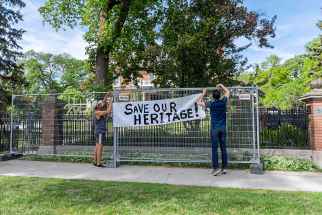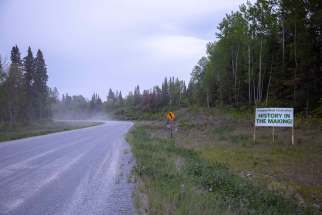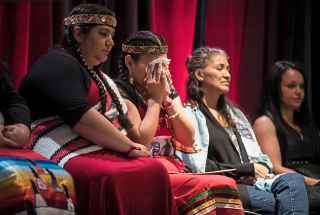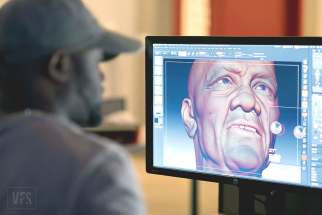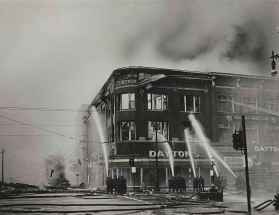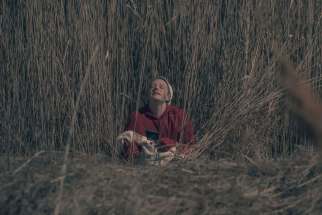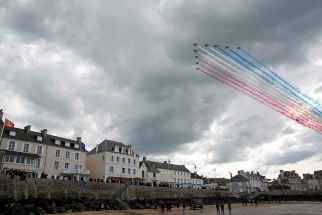The road to everywhere Optimism travels on Shoal Lake 40's new gravel lifeline a century after First Nation cut off to serve Winnipeg's water needs
Read this article for free:
or
Already have an account? Log in here »
To continue reading, please subscribe:
Monthly Digital Subscription
$0 for the first 4 weeks*
- Enjoy unlimited reading on winnipegfreepress.com
- Read the E-Edition, our digital replica newspaper
- Access News Break, our award-winning app
- Play interactive puzzles
*No charge for 4 weeks then price increases to the regular rate of $19.00 plus GST every four weeks. Offer available to new and qualified returning subscribers only. Cancel any time.
Monthly Digital Subscription
$4.75/week*
- Enjoy unlimited reading on winnipegfreepress.com
- Read the E-Edition, our digital replica newspaper
- Access News Break, our award-winning app
- Play interactive puzzles
*Billed as $19 plus GST every four weeks. Cancel any time.
To continue reading, please subscribe:
Add Free Press access to your Brandon Sun subscription for only an additional
$1 for the first 4 weeks*
*Your next subscription payment will increase by $1.00 and you will be charged $16.99 plus GST for four weeks. After four weeks, your payment will increase to $23.99 plus GST every four weeks.
Read unlimited articles for free today:
or
Already have an account? Log in here »
Hey there, time traveller!
This article was published 07/06/2019 (2382 days ago), so information in it may no longer be current.
SHOAL LAKE 40 FIRST NATION — After the feast is over, five dozen people file into the school gymnasium, finding seats underneath the watchful eye of the eagle painted on the wall, the proud sports banners and the hand-drawn labels naming Ojibway words for animals, directions and seasons.
Niibin, summer. Shaawanong, south. And another, vital to this land: nibi, water.
In the thick late-afternoon heat, someone wedges open the gym doors to let fresh air flow through. So there is a light breeze and a beam of sunlight and dancing whorls of dandelion fluff, too. Children scamper under tables and sprint for the door, lured by the sight of green grass that slopes down to the water.
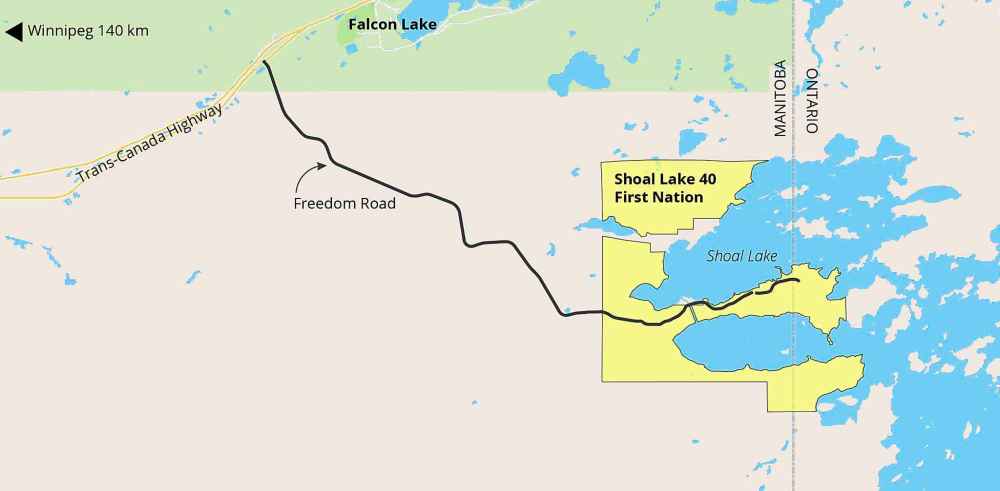
The water is why they are here, in old ways and new. It is Shoal Lake that has sustained this Anishinaabe community straddling the Manitoba-Ontario border since time immemorial. And it is Shoal Lake where, a century ago, settlers came to take the water for the growing city of Winnipeg.
They built an intake pipe that forced the Anishinaabe to move their original village. They carved a deep canal that severed Shoal Lake 40’s land connection, leaving the First Nation stranded on a man-made island. The water gave this community life, and then it also became the walls of their prison.
Not anymore. The 24-kilometre-long gravel vein they call Freedom Road officially opened this week, linking the community to the Trans-Canada Highway just west of Falcon Lake. It took decades of hard work and tireless advocacy to get it built, to make authorities listen, to secure the $30 million in funding from three levels of government.
Now, it’s time for the community to revel in its opening.
It is Wednesday, the third day of four to celebrate. Each had its own theme: on Monday, the community honoured its elders with a powwow. Tuesday was for youth, featuring a carnival, complete with a bouncy castle. Thursday was to be the grand wrap-up, a historic celebration capped by a fireworks show.
Wednesday is for the men, and earlier in the day they went out fishing. Shoal Lake 40 Chief Erwin Redsky caught six walleye; a fine harvest, he says, all of them the perfect size for eating. As the afternoon wears on, the community gathers under a tent near the school for dinner, sharing a feast of roasted potatoes and ham.
Now, they file into the school’s gym for a special occasion. For two years, the National Film Board worked on a documentary series about Freedom Road. Tonight, the films will make their debut right here in the community.
In the shade behind the school, director Angelina McLeod chats as she waits for the screening to start. She is nervous; she put so much of herself into these films, she explains. Each one echoes with her own memories of family, of life and of hardships in Shoal Lake 40.
McLeod grew up here, where her late father was once chief, but she hasn’t lived here for many years. Growing up in Shoal Lake “wasn’t that good” back then, she says, especially when she was old enough to realize the way they lived wasn’t normal, hauling pails of water every day from the lake.
As a teen, she was sent off to school in Kenora, where she boarded with a white family and struggled, as many Shoal Lake 40 youth do, with the culture shock of being separated from her community. But she couldn’t go home, because the school here goes up only to Grade 8, and the journey across the water was often arduous.
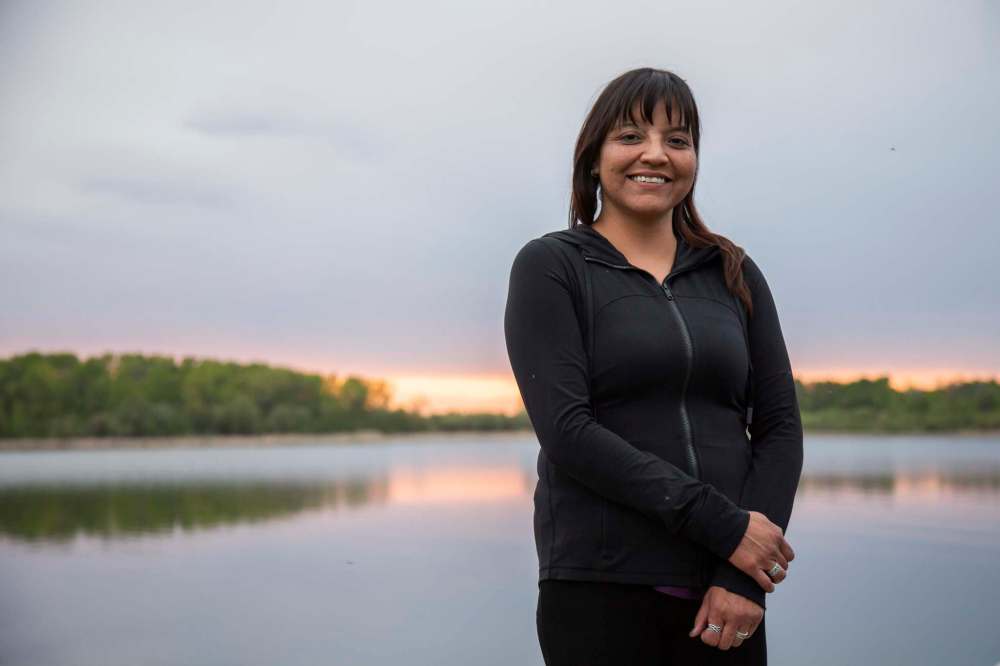
After school, McLeod moved to Toronto, where she trained as a filmmaker, and then back to Winnipeg. She enrolled at the University of Manitoba, where she minored in film and majored in native studies. It was there that she met NFB producer Alicia Smith, and joined the Freedom Road documentary team.
In the end, they produced five short films, each one focused on a different facet of Shoal Lake 40’s experience. There is a film exploring how not having a road impacted the community’s women. Others feature the men, the youth and the elders. An introductory film, featuring McLeod herself, gives the broad context.
The films were finished just last week and are scheduled for release later this year. But this is the first time anyone other than the filmmakers will see them.
In the gymnasium, volunteers hand out bags of salted popcorn and the audience settles into their seats. Standing on a narrow stage near the screen, McLeod tells the audience she hopes they like the films she’s made. She tells them how much it meant to her, to be the one to help make them.
“It brought me back home,” she says. “It reconnected me with everyone here… I feel like I’m home again.”
The road joins together all that which was torn asunder, so that the city of Winnipeg could grow rich. The city forgot about Shoal Lake, or perhaps, more accurately, it never wanted to remember. But here, at the heart of it all, some connections are too precious to forget.
● ● ●
Where Freedom Road meets the Trans-Canada Highway,its mouth is wide and welcoming. It winds gently through the trees, past parked construction equipment and mountains of blasted rock. It passes by signs proclaiming the week’s celebration: “History in the Making!” reads one. Or, another: “Almost there only 5 minutes away!”
Nothing is perfect and Freedom Road isn’t, either. It’s studded with rocks that sometimes pop into windshields, and when the weather is too dry, dust billows up behind tires in great opaque clouds. But it is also wide, with broad easy shoulders, and above all it is, undoubtedly and definitively, a road.
Before it existed, the journey out of Shoal Lake 40 could be gruelling. In summer, community members crossed the lake on an old barge, its rusted bulk now sitting on the shore. In winter, they’d have to walk or drive across the ice; ambulances wouldn’t cross, forcing pregnant women in labour to find their own way to the other side.

Everyone in Shoal Lake 40 has a story about falling through the ice, or about a life claimed by the water. McLeod’s mother, Emily, died in the crossing when her canoe capsized. The filmmaker herself fell through the ice once, though she shrugs it off.
“To me, it’s not really a super big, big deal,” she says.
That’s how normal it was.
Still, the community long tried to make the best of the situation. For a week early each winter, when the water began to freeze up, Shoal Lake 40 was totally locked in; with a flash of tongue-in-cheek humour they dubbed it Alcatraz Week, and filled the days with games and bingo and feasts.
There was no Alcatraz Week last year. The road was still under construction, but open enough to use.
The opening marked the culmination of a dream held by generations of Shoal Lake 40 people. At home, McLeod keeps a copy of an old letter her father sent to the federal government department then called Indian Affairs, outlining the struggles the community faced and their need for relief; the hope for a road began long before him, too.
When it came, the community was ecstatic. Over the last several years, they marked each little milestone in its construction. There was a celebration to mark the moment the new bridge crossed over the canal. A ceremony when the last load of gravel was cleared from the juncture of the Trans-Canada Highway.
And at every step along the way, Shoal Lake 40’s people were involved. It’s a small community; fewer than 300 of the 640 members of the First Nation live here. It’s not only their tears that helped cut the path for the road, but their sweat and joy did too; the community’s youth, as one of McLeod’s documentaries highlights, jumped at the chance to work on the construction crews and build that legacy for their people.
The work isn’t over yet, the road not fully completed. Soon, crews will close it briefly just to finish construction. It’s funny to think of this road, so longed for, being finally built and then briefly taken away, but Redsky just laughs. They lasted a century without the road, he says. They can manage a day.
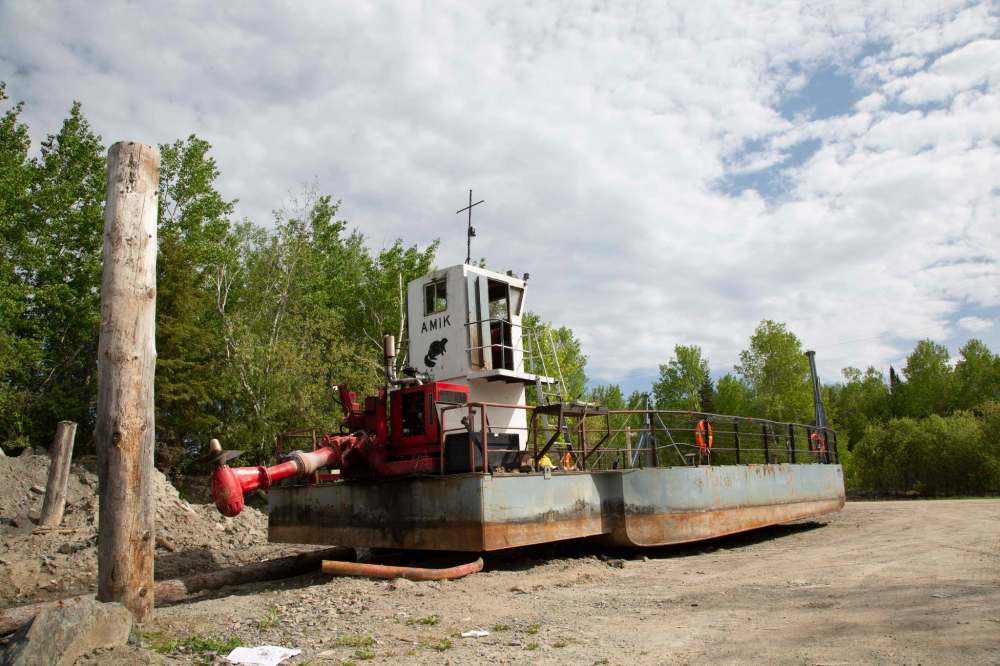
A century is a long time to wait to be connected. Even when the movement to get the road built was well underway, many here tried not to get their hopes up, preferring to believe it when they saw it. And for the chief, it hasn’t quite sunk in that now, after a century of hoping, it’s real.
“Maybe (it will) after the fireworks,” he says, and his eyes are shining.
● ● ●
When the documentaries are over, the audience in the gymnasium bursts into applause. For a few moments, they sit in a gentle silence, dabbing at the corners of their eyes with their sleeves. One of Shoal Lake 40’s band councillors, Roxanne Green, rises with a microphone to host an open discussion.
“How many of you guys got emotional over each film?” Green asks, and all over the gym, hands shoot up.
One by one, community members and visitors rise to speak. They talk about what it meant to see themselves, their children and their story on the screen. They thank McLeod for telling it. Elder Bobby Blackhawk, 83, speaks in Ojibway and English, remembering his many friends who died before they could see this day.
Redsky stands up. He walks to the north side of the gym, and plants his feet at a spot by the red court line. It’s the same place he stood in 2003, he remembers, when the community held a meeting to decide the time had come to make Canada listen. The time had come to build Freedom Road.
“I think it was Bobby who said that, ‘There’s no way out of here, but west (towards the Trans-Canada; there is water in every other direction),” he says, looking at Blackhawk.
As the chief speaks, Jonelle Bruyere, 18, watches quietly. She is wearing a bright blue T-shirt identifying her as a Freedom Road Celebration youth ambassador, and she was featured in the documentary series. The filmmakers came to visit her in December, midway through her senior year.
At first, she was nervous about having cameras following her around Kenora’s Beaver Brae Secondary School, talking about the struggles she’d faced. But Bruyere has been finding her voice in recent years: at school, she became the women’s wrestling team captain, joined a drama club, and started organizing 2SLGBTQ* solidarity events.

“I know my friends in the community aren’t really so outspoken,” she says. “A lot of them tell me they like it when I do stuff like that, because it gives more of a voice to the youth. Coming from a small reserve like this, there’s a lot of shy people who aren’t really comfortable doing that.
“I try to keep that in mind,” she continues. “It’s not only my voice…. Youth are a really vulnerable group, who a lot of people don’t always listen to. If one more person listens to a youth’s voice, then my job will be done.”
There is good news: hers could be among the last generations of Shoal Lake youth who will have to be sent away from home to finish school. With Freedom Road open, the community is exploring options to bus students to a Manitoba high school.
As Bruyere looks at the young children scampering around the gym, she thinks about what that means.
“I think a lot of us are still really struggling, but I think those days will be over more, now that we have Freedom Road,” she says. “We’ll have access to more education. Kids won’t have to leave home for schooling. A lot of kids get that separation anxiety, and deal with a lot of stuff when they are away from their families.”
In the gym, more people rise to speak. A delegation of teens from the Seven Oaks School Division’s Met School — which combines academics and real-world mentored internships — are here and they brought a poster board decorated with messages of support from students. In March, the school held a fashion show, Strut For Shoal Lake, which raised more than $7,000 for the community.
A representative from Pioneer Camp Manitoba, which operates out of two islands on the north side of the lake, stands to thank the community for building a relationship with the camp. It has facilitated summer courses that connect University of Winnipeg students and Shoal Lake elders.
The road has drawn together places long ago forced apart. It also joined a community all its own, a mosaic of allies that Shoal Lake 40 met along the way. And maybe that’s the heart of what Freedom Road means. It was never just a stretch of gravel; it was always about something more.
“It’s going to show a lot of our youth that it’s OK to speak up, and it’s OK to want to be treated like a human being, and to have access to what everyone else has access to,” Bruyere says.
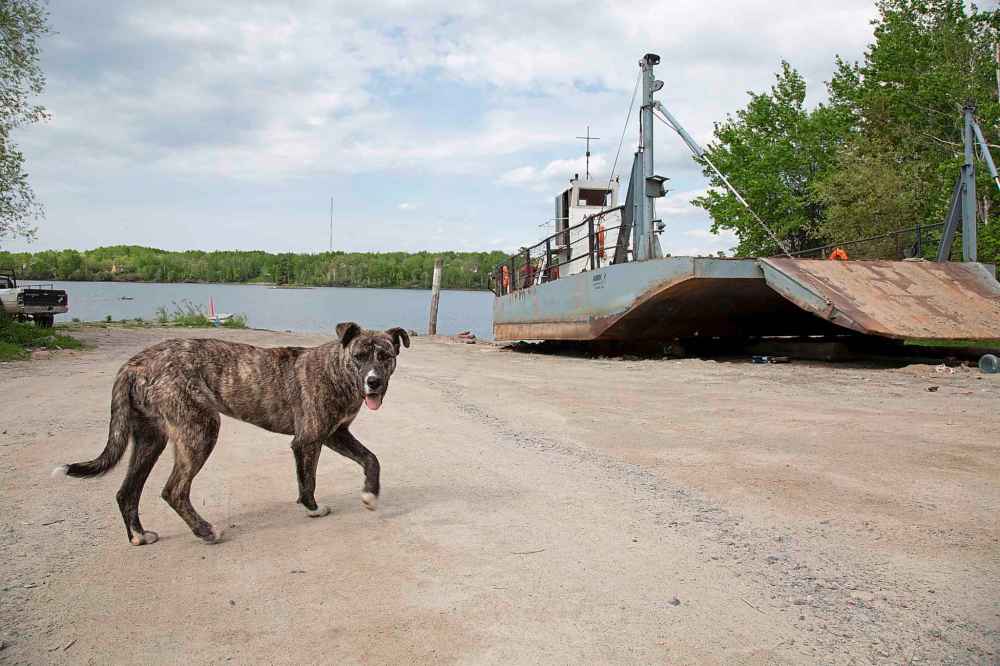
“That’s what the generation before us didn’t have… feeling like their voice mattered, and that they can speak and something will happen.”
● ● ●
After the screening is over and the audience has wandered out for the night, McLeod settles onto a picnic table by the water, brushes away a swarm of eager mosquitoes, and flashes a bright grin. She is relieved the films were so well received. She has had trouble sleeping for months.
She thinks back to what she told the audience, about how making the documentaries brought her back home. In a way, she sees the same spark of connection all over Shoal Lake 40, forged in the long journey to build Freedom Road.
“I think it brought us closer together,” she says. “It didn’t seem that close, back then when I was young. Now, it seems like all the love and the care came together in the community…. It connected us in respect.”
She pauses, and looks over the lake. Just beyond the pier, a beaver cuts a narrow wake through the mirrored grey water, smacks its tail on the surface and plunges under. To the east, a vast flock of geese flies in jagged formation, following some ancient migration route to who-knows-where.
The next morning, Shoal Lake 40 fills up with visitors for the final celebration. Hundreds of guests come to mark the occasion, including many supporters from the Friends of Shoal Lake 40, who helped drive the awareness campaign in Winnipeg. It’s more people, Redsky thinks, than have ever gathered here before.
There is a talent show and a concert featuring renowned blues singer Billy Joe Green. There are speeches and dances and a joyful feast. Federal Indigenous Services Minister Seamus O’Regan makes the trip out to join in the celebration, and speaks off the cuff to the assembled crowd.
Later, the fireworks dance across the darkening sky, christening Freedom Road with flashes of light.
Now, Shoal Lake 40’s focus turns to the future. The water treatment plant the community so badly needs is in the works. The funding is in place, a final design has been approved and contracts are out for tender. The plan now is to have it running by the fall of 2020, pumping out clean drinking water.
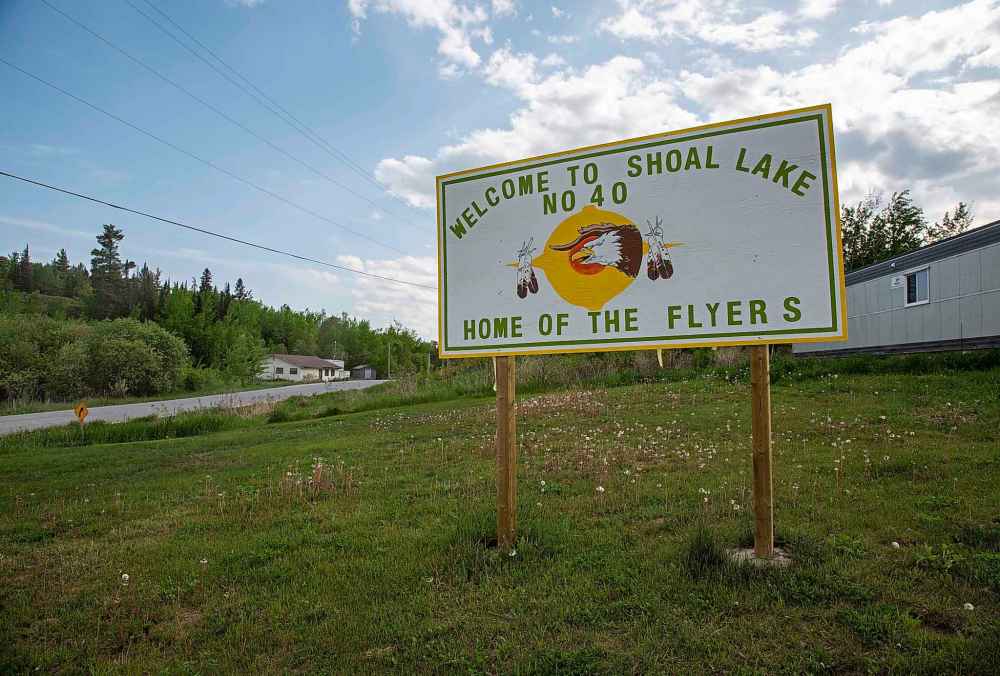
There are other plans in motion, new paths to follow, new dreams to explore. Redsky wants the reserve to open a business near the highway that would bring jobs and revenue for improvements in a community long cut off from much in the way of economic opportunity.
That is just the beginning. The story of Shoal Lake 40’s search for justice didn’t begin with Freedom Road and it won’t end with it, either. It remains bound to Winnipeg by history and water, and the truth of that relationship — and what it cost Shoal Lake’s people — has yet to be fully acknowledged by the city.
So there is still work to be done, wounds to be healed and voices to be heard, but there are options now, where there were too few before.
There are so many more places for the people of Shoal Lake 40 to go.
melissa.martin@freepress.mb.ca
Our newsroom depends on a growing audience of readers to power our journalism. If you are not a paid reader, please consider becoming a subscriber.
Our newsroom depends on its audience of readers to power our journalism. Thank you for your support.
History
Updated on Friday, June 7, 2019 8:12 PM CDT: fixes typos



